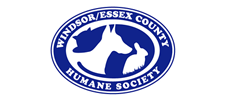Session G: Looking for compromise: is human-non-human animal shared welfare possible?
Abstract
There is a lot of discussions in contemporary post-human discourse regarding animal welfare. This is visible in debates on welfare of both domesticated and wild animals. There also are discussions on providing maxiumum of possible welfare in farm production. However all those discussions finally are confronted with the question: is it possible to compromise? How one can reach both goals: animal welfare and human welfare?
In my presentation I will examine the conflict of interests important for both groups: humans and non-humans. First of all I will try to prove that excluding humans from animal world is self-defense psychological technique creating emotional distance and allowing to perform all practices of animal exploitation. Secondly, by providing exemplifications of certain practices that humans perform on other animals, I will try to look for the answer to the main question: how would it be possible to share the state of welfare? Of course in order to debate on the notion of animal welfare, one needs to rethink the definition of this term. Based on this I will expose problems and dilemmas in applying this definition to western social and cultural reality based on animal exploitation.
Oppressive practices performed by humans on other animals take various forms and the level of oppression differs as well. Justifications for those practices are different and they take forms of various kinds of argumentations. Some of them are claimed to be performed in the pure interest of animals (testicle implants, spaying). Some of them are claimed to be performed in the interest of animals, while they serve humans (case of debeaking, which is meant to ‘prevent aggression’ among birds, while in fact it does not limit aggression caused by frustration. Debeaking is performed only to limit financial loss of the producers). There also are some of the practices impossible to defend by those narrations: they serve only humans (one of most disturbing is dogs devocalization).
Session G: Looking for compromise: is human-non-human animal shared welfare possible?
There is a lot of discussions in contemporary post-human discourse regarding animal welfare. This is visible in debates on welfare of both domesticated and wild animals. There also are discussions on providing maxiumum of possible welfare in farm production. However all those discussions finally are confronted with the question: is it possible to compromise? How one can reach both goals: animal welfare and human welfare?
In my presentation I will examine the conflict of interests important for both groups: humans and non-humans. First of all I will try to prove that excluding humans from animal world is self-defense psychological technique creating emotional distance and allowing to perform all practices of animal exploitation. Secondly, by providing exemplifications of certain practices that humans perform on other animals, I will try to look for the answer to the main question: how would it be possible to share the state of welfare? Of course in order to debate on the notion of animal welfare, one needs to rethink the definition of this term. Based on this I will expose problems and dilemmas in applying this definition to western social and cultural reality based on animal exploitation.
Oppressive practices performed by humans on other animals take various forms and the level of oppression differs as well. Justifications for those practices are different and they take forms of various kinds of argumentations. Some of them are claimed to be performed in the pure interest of animals (testicle implants, spaying). Some of them are claimed to be performed in the interest of animals, while they serve humans (case of debeaking, which is meant to ‘prevent aggression’ among birds, while in fact it does not limit aggression caused by frustration. Debeaking is performed only to limit financial loss of the producers). There also are some of the practices impossible to defend by those narrations: they serve only humans (one of most disturbing is dogs devocalization).




